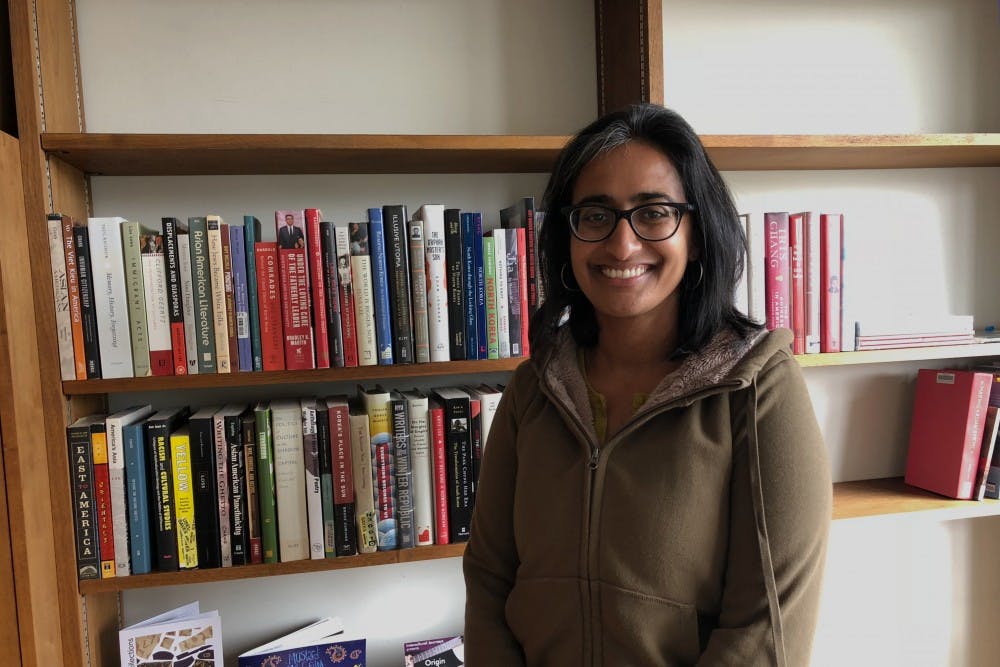
After more than a year and a half of student- and faculty-led advocacy, Penn has hired Rupa Pillai, a scholar of anthropology and Asian American studies, as the newest, full-time lecturer in the University's Asian American Studies program.
This fall, Pillai began teaching two new courses in the program — an introduction to Asian American Studies lecture and a seminar about Asian-American religions — accounting for one-third of the program's course offerings this semester.
ASAM Undergraduate Advisory Board co-Chair and College senior Trinh Nguyen noted that although the courses are new, it is not an expansion of the courses offered within the program. Two ASAM courses typically offered in the fall — Asian-American literature, one of the program's core classes, and Asian-American activism — were not offered this semester due to "lack of manpower."
ASAM Associate Director and faculty member Fariha Khan sent an email to an ASAM listserv announcing the new classes on Aug. 22.
Pillai's hiring marks a step forward for the program, which has been mired in controversy since early 2017, when Grace Kao, a sociology professor and longstanding ASAM faculty member, left Penn for Yale University. Kao's departure sparked protests across campus with faculty and students calling on administrators to increase funding and support for the shrinking ASAM program.
In response to those pleas, School of Arts and Sciences Dean Steven Fluharty indicated later that year that administrators would put out an advertisement for a full-time lecturer in the Asian American Studies program. Amid continuing complaints from students and faculty, Fluharty announced the appointment of English professor Josephine Park as ASAM interim director.
It is unclear if there is an ongoing search for a permanent ASAM director or additional standing faculty members to replace Kao.
Pillai said she is looking forward to working with the ASAM UAB and other faculty members to think about the future of the program and how its curriculum can grow and be sustained.
Before coming to Penn, Pillai received a master's degree in social science from the University of Chicago and a doctorate in cultural anthropology from the University of Oregon. Her research has focused on the intersection of race, migration, and religion.
Pillai said a course she took as an undergraduate at the University of Texas at Austin, called "South Asian American Activism," sparked her initial interest in Asian American Studies.
“That course contextualized the experiences of South Asian Americans and spoke to me in a way that, at that point, no courses had," Pillai said. "I could see myself."
Pillai added that as an Indian American growing up in Texas, she was used to “growing up as a token minority and not having [her] voice present in course [curricula].”
Since then, Pillai has taught a range of anthropology and ethnic studies courses at Oregon, Brandeis, and Tufts universities. She visited Penn in March 2018 to give a lecture entitled "Insights from Beach Pujas: Caribbean Hindu Place-Making in New York City" as a part of an ASAM speaker series.
When she came across the job advertisement for the Penn position, Pillai thought it was the ideal role.
“I remember reading it and I was like, ‘This is a dream gig,’” Pillai recollected.
Park said Pillai quickly rose up in the applicant pool.
“Her research is really exciting, not only because of the community she focuses on, but also for her innovative methods,” Park wrote in an email to The Daily Pennsylvanian. “We were especially excited about the courses she proposed, in fields and employing critical lenses that we just haven’t been able to offer here.”
In the spring semester, Pillai plans to teach other ASAM courses, including a course on Asian American gender and sexuality and a class that examines the “forgotten” history of early Asian migration to the Americas, which she previously taught at Tufts.
The Daily Pennsylvanian is an independent, student-run newspaper. Please consider making a donation to support the coverage that shapes the University. Your generosity ensures a future of strong journalism at Penn.
Donate







